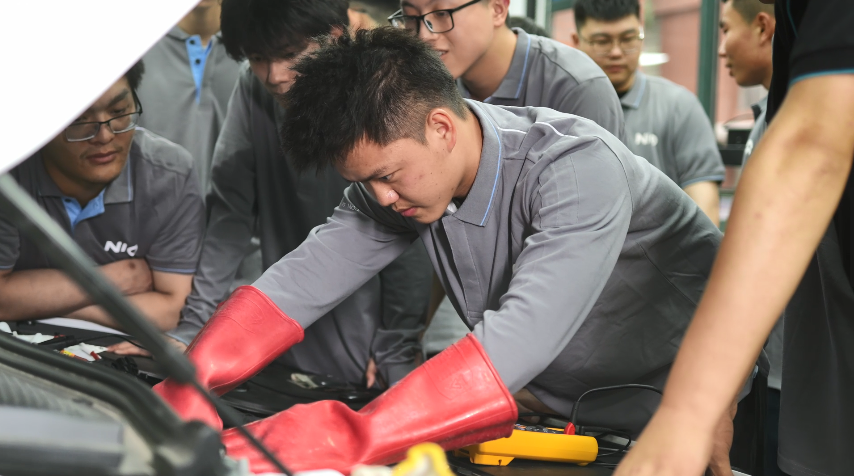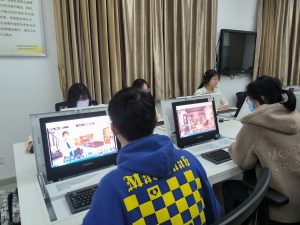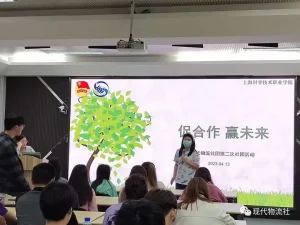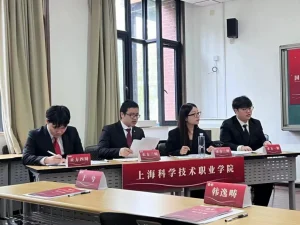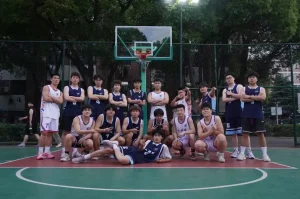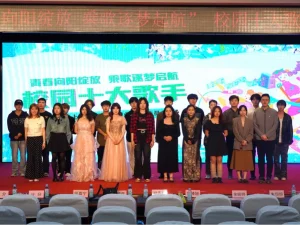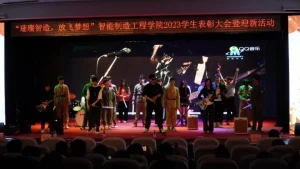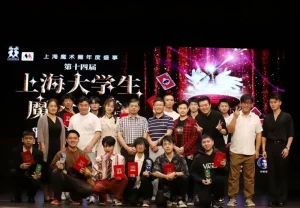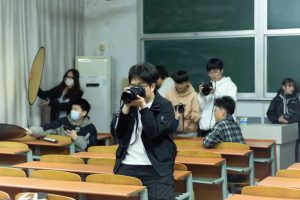Established on June 18 this year, the Shanghai International Auto City Industry-Education Alliance is anchored in the Shanghai International Auto City park. It was jointly initiated by Shanghai College of Science and Technology and Shanghai International Auto City (Group) Co., Ltd., making it one of the first municipal-level industry-education alliances in Shanghai. Currently, it has 235 member units, including eight government departments (such as the Jiading District Development and Reform Commission, Education Bureau, and Human Resources and Social Security Bureau), 14 vocational and undergraduate institutions, 211 key industry enterprises, and two research institutions.
Following national policies, including the New Energy Vehicle Development Plan (2021-2035), Intelligent Vehicle Development Strategy, and Jiading District’s “New Four Modernizations” Automotive Industry Action Plan (2021-2025), the alliance—led by the Jiading Automotive Talent Research Association and Shanghai College of Science and Technology—focuses on aligning with Jiading’s trillion-yuan “New Four Modernizations” automotive industry and economic development. Key initiatives include surveying talent supply and demand trends in the automotive sector, mapping key enterprises and talent needs in intelligent connected vehicle (ICV) components, and analyzing the top 40 talents in the ICV sector. Through interviews, visits, and reports, the alliance collects members’ talent and technical needs and shares industry policies and market trends via official WeChat groups and public accounts. The goal is to establish a dynamic collaboration mechanism between academic programs and industry needs, enhancing the automotive talent training system. Notably, six specialized professional clusters within the alliance—including Intelligent Connected Vehicle Technology, Intelligent Control Technology, IoT Applications, Software Technology, Digital Media Technology, and Intelligent Manufacturing Engineering Technology—have been recognized as part of Shanghai’s new round of high-level professional clusters.
The alliance actively promotes collaboration among government, industries, schools, enterprises, and research institutions in talent development, resource building, and technological research. It integrates real-world industry scenarios, new technologies, processes, standards, and equipment into education. Key achievements include:
- Developing five training programs for intelligent connected vehicle technology and new energy vehicle testing & maintenance.
- Creating seven specialized courses such as “Chassis Control Technology for Intelligent Connected Vehicles”.
- Establishing two professional resource libraries for intelligent connected vehicle technology and intelligent control technology.
- Developing five virtual simulation teaching resources, including “NIO Virtual Disassembly & Digital Resource System” and “NIO Virtual Fault Diagnosis & Digital Resource System”.
- Organizing major events such as the Shanghai “China Cup” Intelligent Connected Vehicle Technology Competition and the Intelligent New Energy Vehicle Professional Development Forum.
Industry Collaboration and Practical Training
Keeping pace with industry developments, the alliance has partnered with Shanghai NIO and member schools to implement the modern apprenticeship system and establish NIO Technician Training Programs, providing students with job opportunities. It has also collaborated with Shanghai College of Science and Technology to create the Shanghai Open Regional Industry-Education Integration Practice Center – NIO New Energy Vehicle Industry-Education Integration Production Practice Center. This initiative, supported by a ¥15 million investment from NIO and ¥7 million from the school, focuses on developing:
- NIO Skills Training Center
- NIO Technology Experience Center
- NIO Third-Generation Battery Swap Station
Adopting an open, collaborative operational model, the center serves alliance schools and regional vocational institutions, developing:
- Smart Virtual Simulation Training Center for New Energy Vehicles
- Course Development & Experiment Center
- Open Training Center for New Energy Vehicle After-Sales Maintenance
- School-Enterprise Collaborative Innovation Platform
Through these platforms, the alliance organizes internships, training programs, skills competitions, and government/industry-led vocational training while supporting process improvements and technology R&D.
Future Outlook
Moving forward, the alliance will leverage Shanghai International Auto City’s resources to focus on three core objectives:
- Deepening industry-education integration
- Promoting collaboration between vocational and general education
- Exploring synergies between science, education, and industry
By strengthening long-term cooperation mechanisms between government, industries, schools, enterprises, and research institutions, the alliance aims to innovate industry-education collaboration, create a resource-sharing ecosystem, and drive industry and regional economic growth, ultimately contributing to the high-quality development of China’s automotive sector.

